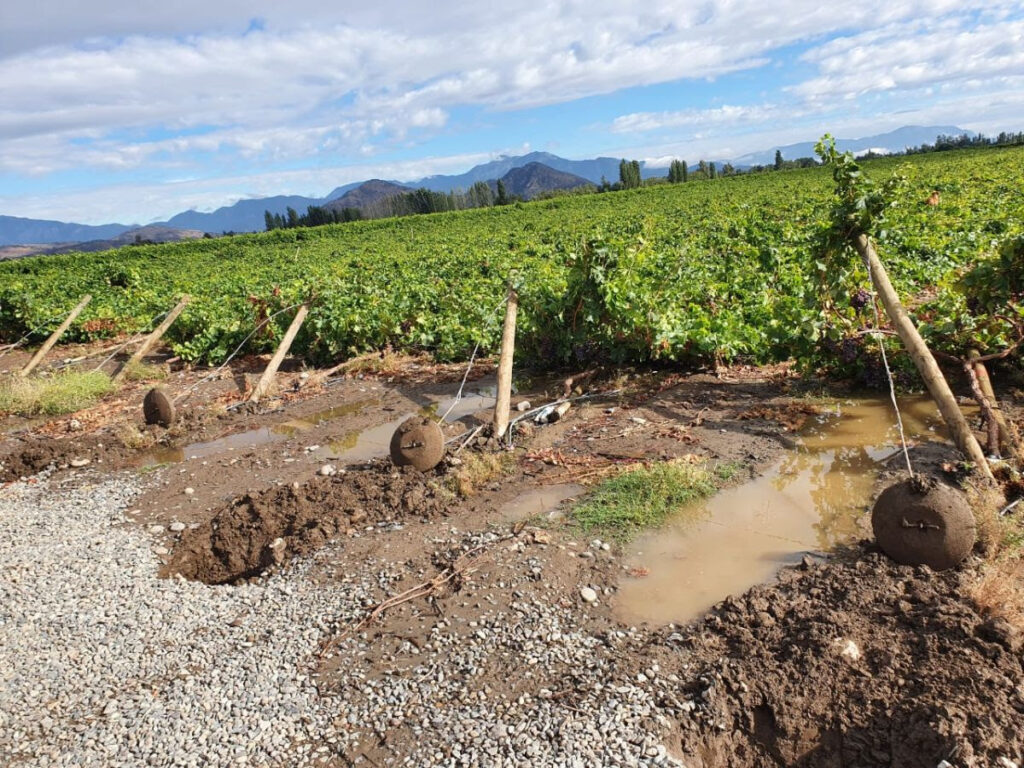Chile Fruit Harvest Deeply Affected by Heavy Rains, Rise in Prices Expected
Chile has faced unusual heavy rain, strong winds, and even hail on January 29th and 30th. The two days' rain was concentrated in the southern-central parts of Chile. The capital Santiago saw the volume expected in 6 months, from November to April, to be poured down within 24 hours. This has caused numerous floods, landslides, blackouts, and extreme damage to the agricultural sector, especially on vegetables and summer fruits that were ready to be harvested. The produce affected by the rain includes important export products such as table grapes, stone fruits, and blueberries.
Effects on fruits
The widespread rains with more than 60 mm in one day hit many production areas. Table fruits had been in their second week of harvesting, and it was showing promising results when the rain hit the vineyards. Grapes that were about to be harvested are showing a lot of splitting caused by the abundance of water in the fruit affecting quality and yield. More damaging than that were the collapses of grapevines trellises that could not carry all the added weight. Producers of the Thomson variety report the appearance of half-moon syndrome, a fungus that causes rotting of the grains damaging the commerciality of the fruits. Hail also fell during the night, complicating the situation further. The damage for grapes is estimated to have spread for 25 thousand ha and possibly affects 50% of the affected areas' production.

Source: Fresh Fruit Portal
Reports on late varieties of Brightwell and Ochlockonee blueberries already show substantial splitting on the berries, and for the Last Call variety, the situation is under evaluation. The damages will certainly drop the expected production volume and exports for MY 2020/21. For the stone fruits, it has already been reported cases of splitting and rotting, especially for peaches and plums. So far, the least affected fruits productions were apples and pears. The Chilean fruits exporters’ association - Asoex, has reported that the complete damage to the sector is still hard to predict since the rain is ongoing, and rotting effects will only be accountable for in the following days.
Effects on export and price
Chile is the largest exporter of table grapes globally, but it has been facing numerous problems of heavy droughts, labor shortages and has been challenged by Peruvian producers (“The Downfall of Chilean Grapes and Rise of Peru”). The heavy rain is adding to an already existing shaken production.
About blueberries, Chilean producers were expecting a slight increase in the exports to achieve 111 MT, but it has only been able to export 15% of the season's expected volumes. The damages seen so far will affect the expected volume, which might not be achieved.
The main concern of buyers at the moment is the number of fruits that have enough export quality to withstand the logistics period to arrive at their destinations with good conditions since the moisture contents drastically reduce the shelf life of fresh fruits.
The main destinations of Chilean table grapes are the US and Europe, where they will see strong prices with less Chilean grapes availability. It could definitely be an opportunity for Peru to take advantage of the situation and increase its market share.
Domestically, Chile expects the prices of summer fruits to drop as non-exportable fruits will flood the market. On the other hand, the vegetables might see an increase of about 10% during the next weeks, but it will be normalized as harvest continues.
Sources:
- Floodlist. "Chile - Floods, and Landslides After record Rainfall."
- Fresh Fruit Portal. "Chile reports serious damage to fruit crops following unseasonal heavy rains."
- Translated from Spanish. Santiago Tribune. "Heavy rain causes landslides and floods in Chile."


